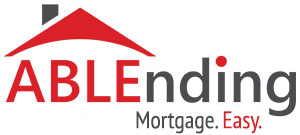Mortgage Lending Rate Slows
The increase in interest rates, coupled with rising house prices and the decrease in the average consumer’s disposable income is “increasingly squeezing new buyers out of the market and making it more difficult for existing house owners to trade up,” said Howard Archer, Global Insight’s Chief UK and Global Economist.
This, in turn, has had a pronounced effect on home loans; the continuing rise in inflation deterring homeowners from borrowing.
Existing mortgages repayments have risen, with many homeowners struggling to meet repayments, leading to an increase of 30% in the annual number of Individual Voluntary Agreements.
A large number of homeowners have turned to credit cards in order to manage their finances through difficult circumstances, only to find themselves trapped in a circle of debt that threatens to undermine their credit ratings and restrict future applications for further loans or borrowing.
Some homeowners, however, have found a way to break that circle of debt. The emergence of mortgage brokers who specialise in remortgages for those with bad or negative credit ratings has offered a solution to potential insolvency.
Putting the equity in their homes to good use, they are also exploiting the annual average growth of 10% with regard to property prices. This offers them more useable funds than they previously thought.
With these funds, consumers are able to pay off outstanding debts and positively affect or ‘repair’ their bad credit ratings. The rates of interest they agree with their mortgage or remortgage lenders will also have been designed to reflect their circumstances and allow better future financial management.
Some of these lenders offer what is known as a ‘payment holiday’, allowing homeowners with remortgages the chance to settle any immediate debts quickly and then concentrate on using their newly-freed funds to continue to repair damaged credit scores and maintain solvency.

Leave A Comment